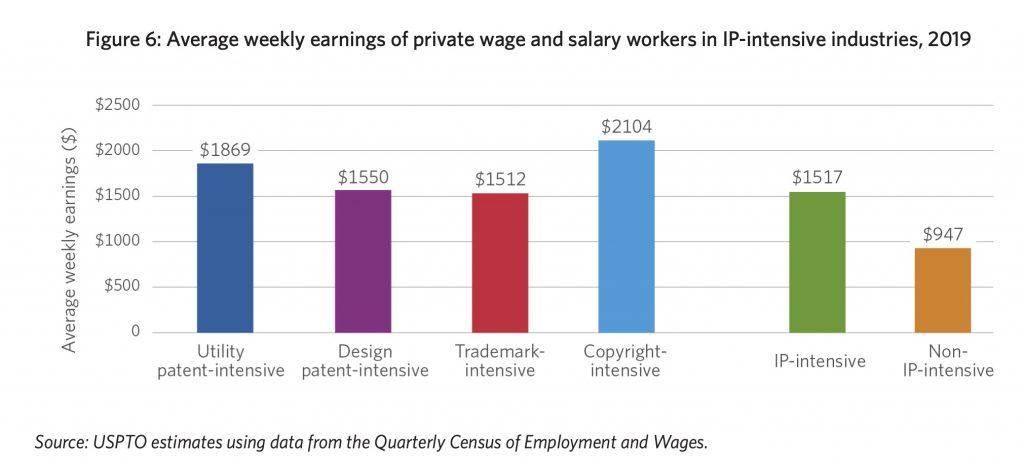
63 million U.S. jobs, or 44% of all U.S. employees, work in intellectual property (‘IP’) intensive industries that rely on the value created by patents, trademarks or copyrights. That’s from a report published by the USPTO.
In other highlights from the report, employees of IP-intensive industries are likely to:
- earn 60% higher wages than their counterparts in non-IP intensive industries (97% higher for utility patent-intensive industries)
- work in larger companies
- have employer-provided health insurance
- have employer-sponsored retirement plans
- have a bachelor’s degree or higher
- be veterans
The highest incomes are in copyright-intensive industries (that’s content creation, not content distribution), followed by utility patent-intensive industries, design patent-intensive industries and finally trademark-intensive industries.
In deciding which industries are IP-intensive, the researchers counted the number of utility patents obtained, the number of design patents obtained, the number of trademarks issued and the number of copyrighted works produced per 1000 employees in the industry and compared the result to national averages. For example, the automobile manufacturing industry produced 54 utility patents per 1000 workers during the study period, compared with a national average of 4.25 patents per 1000 workers, leading to the conclusion that the automobile manufacturing industry is utility patent-intensive.
The report notes that from the industrial revolution to the 1990s, most capital investment in the U.S. was in tangible assets – machinery, buildings, infrastructure. Since the 1990s, most capital investment in the U.S. is in intangible assets – research and development, computer software, databases, designs, training, brand development, creation of entertainment, literary and artistic works. As the report states: “IP rights provide incentives for organizations and individuals to develop and pursue commercial opportunities related to their intangible assets.”
Truer words have not been spoken. The inescapable conclusion? Intellectual property must be protected to encourage the creation and retention of good-paying, U.S. jobs.
*Actually, the report was authored by economists working for the USPTO, but who wants to read an article that includes the word ‘economists?’
— Robert Yarbrough, Esq.

